Building an inclusive and greener world

Intellectual
Capital

Manufactured
Capital

Human
Capital
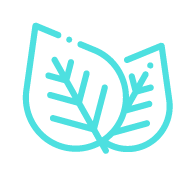
Natural
Capital
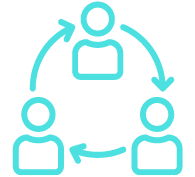
Social and
Relationship
Capital
We are conscious of both our dependence on and responsibility towards our communities and the environment, across the value chain and lifecycle of our products. We remain committed to innovating, exploring new technologies, and improving our processes to become more sustainable through enhanced Manufactured Capital and Intellectual Capital.
We are working closely with our communities and investing in social programmes to achieve our goals. We are also leveraging our Human Capital through employee engagement and volunteering efforts to maximise Natural Capital and Social and Relationship Capital.
For more details, refer to the SDG mapping on our website










Approximately 23 per cent of the promoter holding of the Godrej Group is held in trusts that invest in the environment, healthcare, and education.
Environment
We are proud to protect, develop, and maintain the largest privately managed belt of mangrove forests in Mumbai since
the 1940s.
Education
The Godrej Udayachal pre-primary and primary schools focus on the all-round development of children. The Udayachal High School has been accredited with the International School Award in recognition its global education curriculum and innovative
in-classroom teaching.
We also support Teach For India, a nationwide movement involving outstanding college graduates and young professionals, who commit two years to full-time teaching in under-resourced schools and become lifelong leaders working towards the pursuit of equity in education.
Healthcare
The Godrej Memorial Hospital aims to provide high-quality healthcare at affordable costs. One such initiative is our partnership with Smile Train, a US-based NGO, which helps in performing corrective cleft lip and palate surgery in children from low-income families. We offer surgery and hospitalisation to these children free of cost.
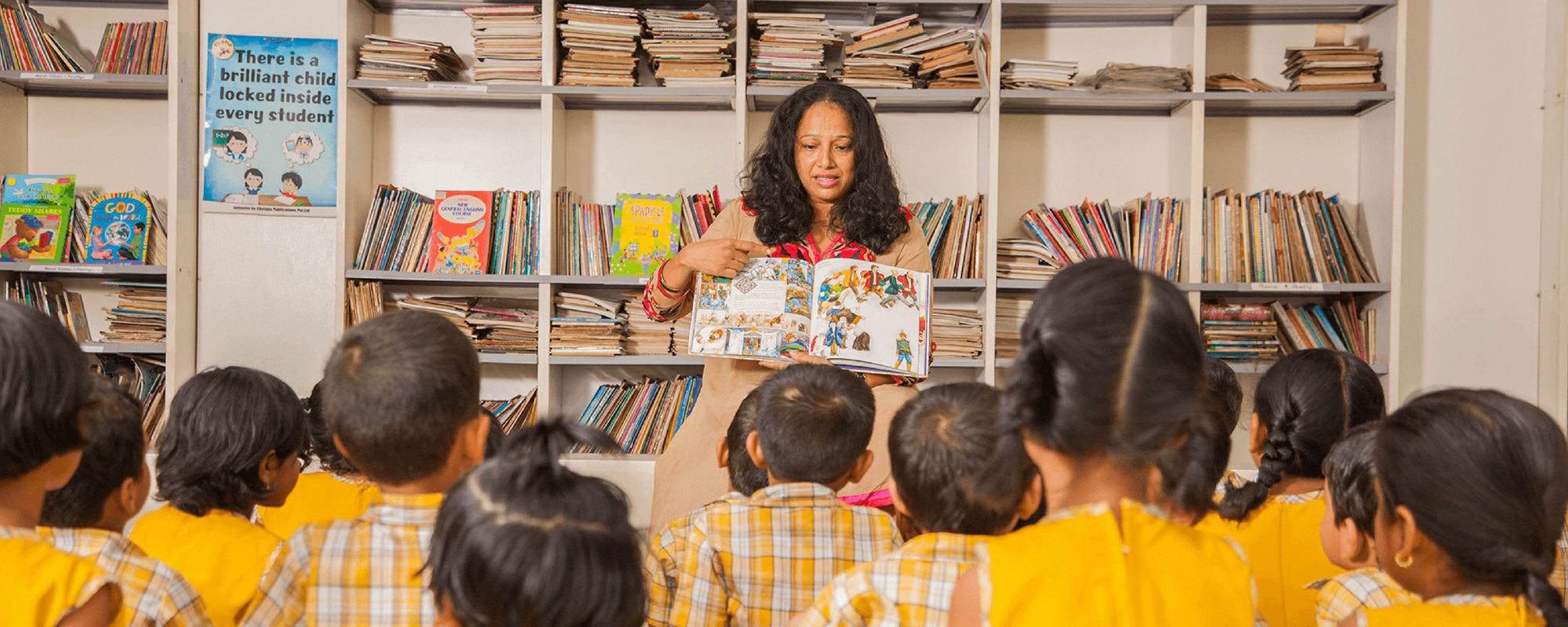
Inside the Godrej Udayachal
school in Mumbai
Sustainability at GCPL is guided by the Godrej Group’s Good & Green vision of creating a more inclusive and
greener world.
We have a comprehensive CSR policy that outlines programmes and projects to create a positive impact on our stakeholders. Our CSR committee reviews, monitors and provides strategic inputs on our sustainability efforts.
Over the years, we have aligned our initiatives with the United Nations’ SDGs, the Government of India’s social development priorities, and the needs of our local communities to deliver high-impact programmes.
Key focus areas and corresponding initiatives
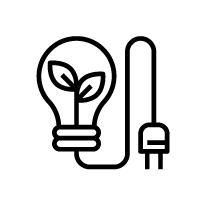
Ensuring judicious use of natural resources
Driving environmental sustainability initiatives at manufacturing plants through Green projects
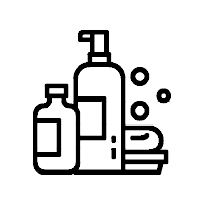
Innovating for sustainable packaging
Incorporating sustainable packaging initiatives through innovation and technology upgradation to minimise the impact of our packaging on the environment

Enhancing employability
Implementing economic empowerment efforts to build inclusive and prosperous communities

Partnering with the Government of India to eliminate malaria by 2030
Through Project EMBED (Elimination of Mosquito Borne Endemic Diseases) that supports the Government’s efforts to eradicate insectborne diseases
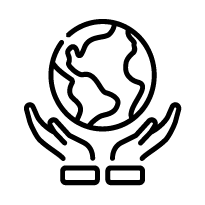
Enabling sustainable communities
Implementing a range of environmental sustainability and community development initiatives

Fostering volunteerism
Initiatives for Godrejites to connect more meaningfully with our communities

As part of our Good & Green vision, we have established five environmental sustainability goals to be achieved by fiscal year 2021. The standards, methodologies, and assumptions used for our calculations were obtained from the ‘IPCC Guidelines for National Greenhouse Gas Inventories, 2006’ and the ‘IPCC AR5
Assessment Report’.
Our overall approach and process is detailed in our FY 2018-19 report: Building a more inclusive and greener world > Good & Green > Optimum use of natural resources
Our goals and performance
1. Energy
Approach
Performance*#
2. Water - Become water positive
Approach
Performance**
3. Waste - Achieve zero waste to landfill
Approach
Performance***
4. Emission - Become carbon neutral
Approach
Performance*####
Notes
* Performance as on March 2020 against fiscal year 2010-11 baseline
# Energy use is calculated by specific energy consumption per tonne of production
## Water usage is calculated by specific water consumption per tonne of production
### Waste generated is calculated by specific waste to landfill per tonne of production
#### Emissions are tracked for Scope 1 and 2 and calculated by specific GHG emissions per tonne
of production
1. Energy
In fiscal year 2020 we have undertaken 70 energy efficiency initiatives to reduce our energy consumption and dependence on conventional energy sources, in relation to our manufacturing scale.
Key initiatives in India in fiscal year 2020:
Reasons for rise in specific energy consumption in fiscal year 2020 include the following:
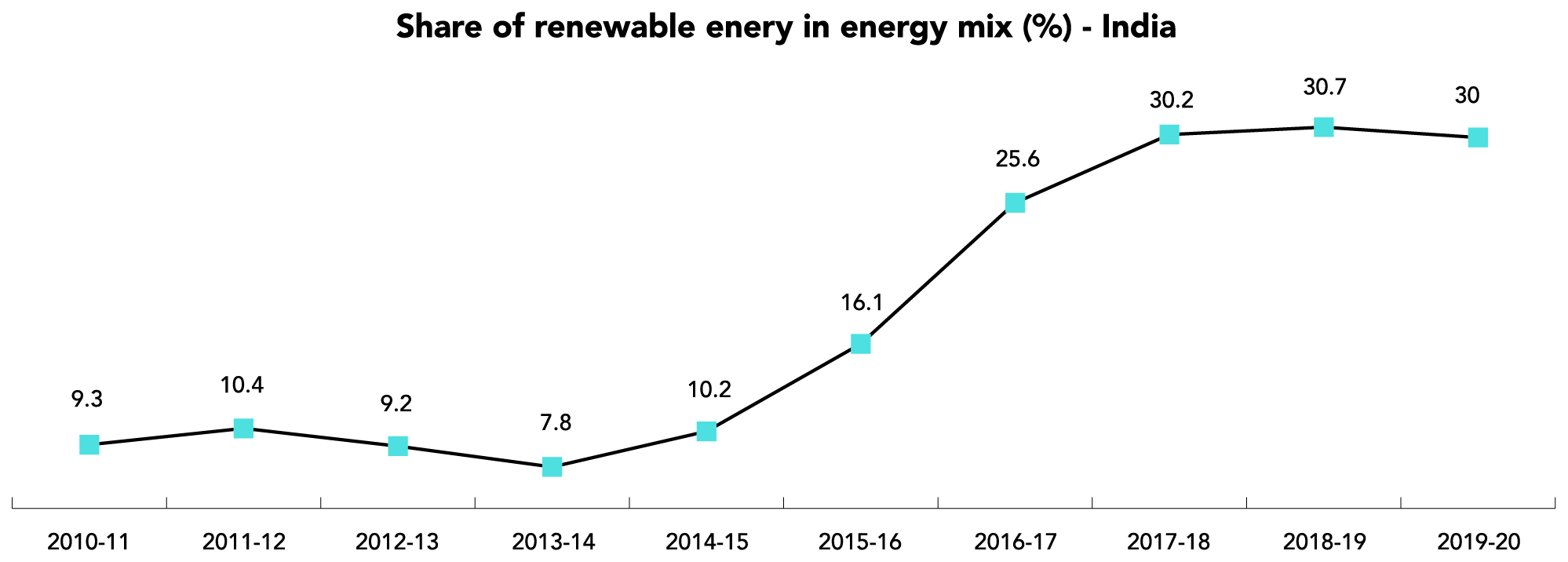
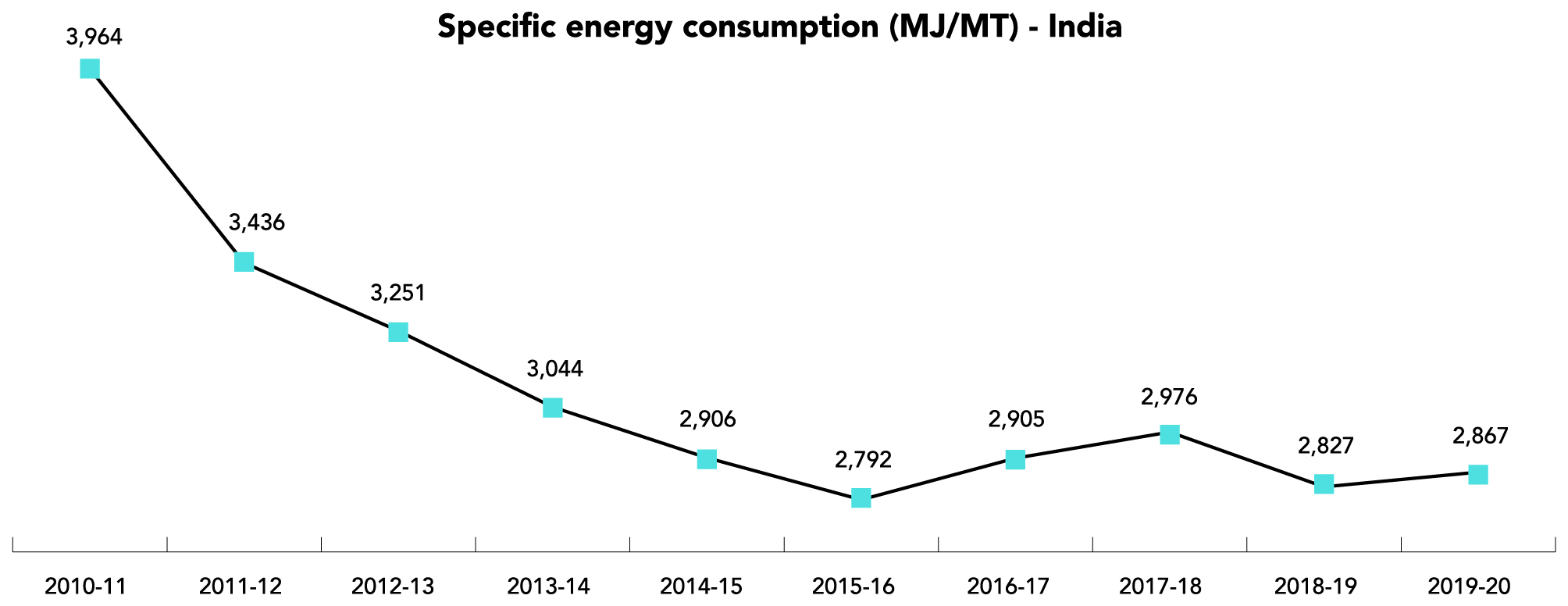
Energy report - Global
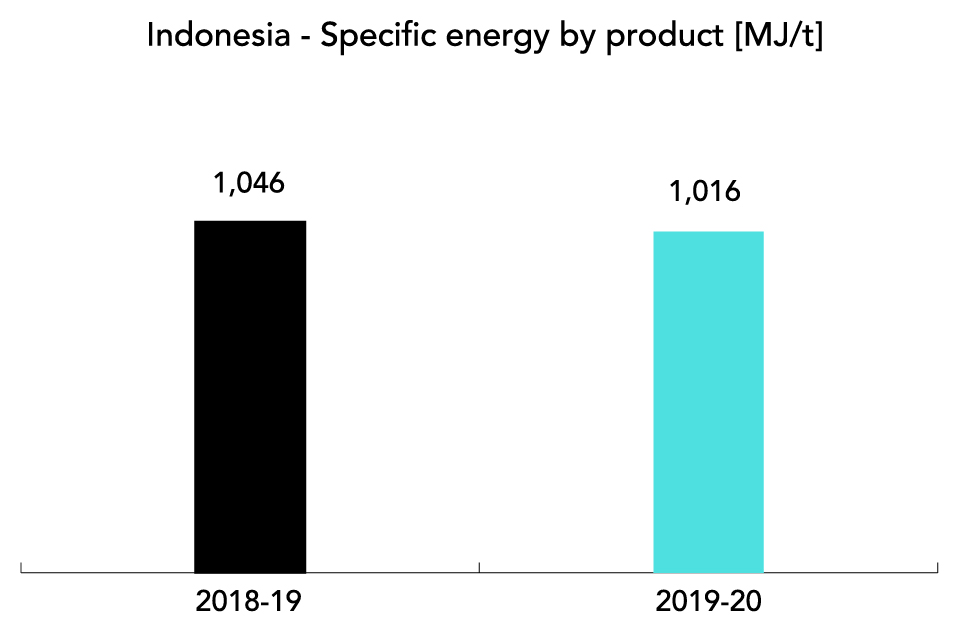
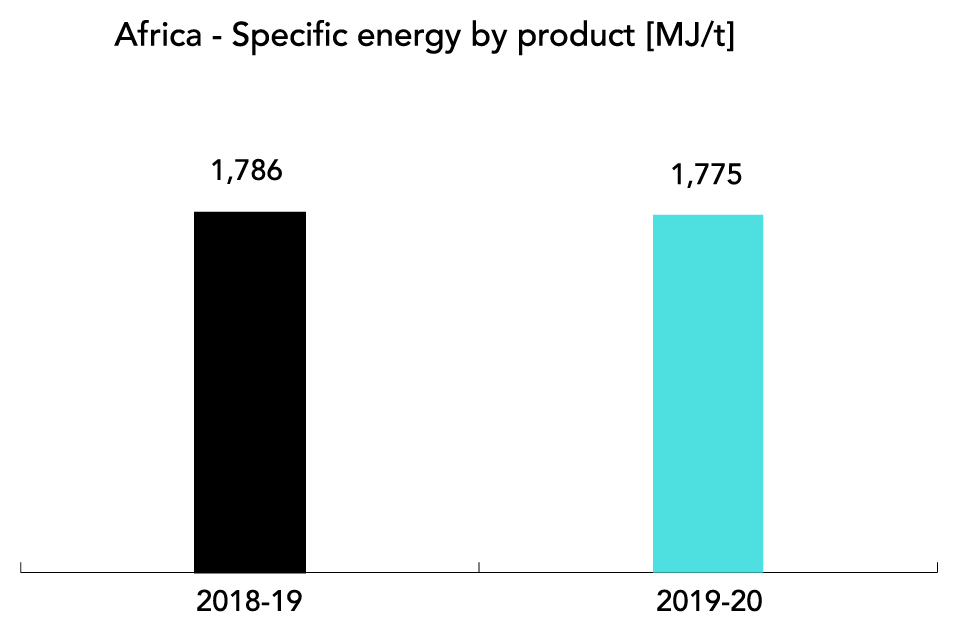
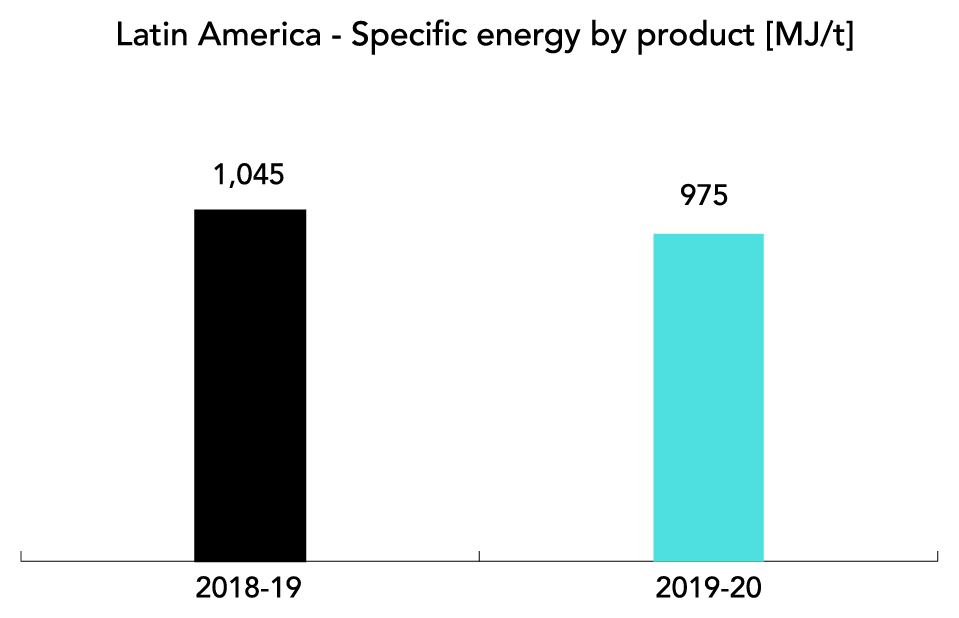
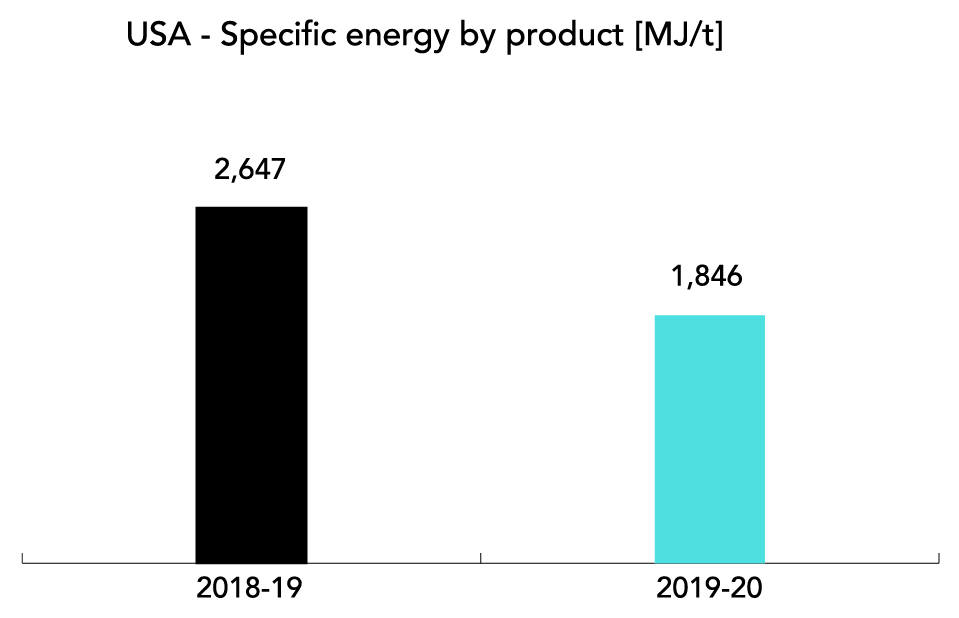
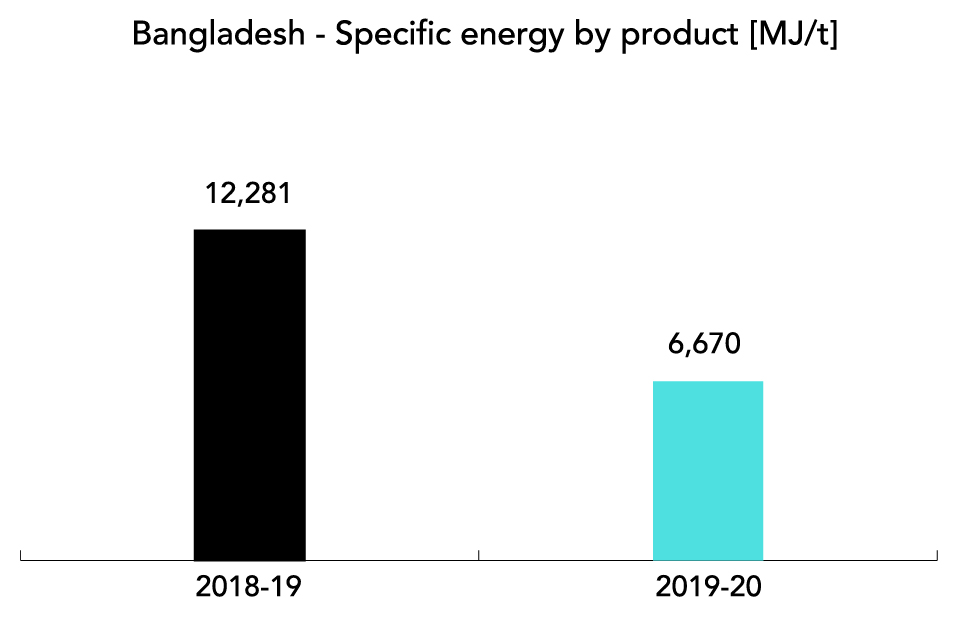
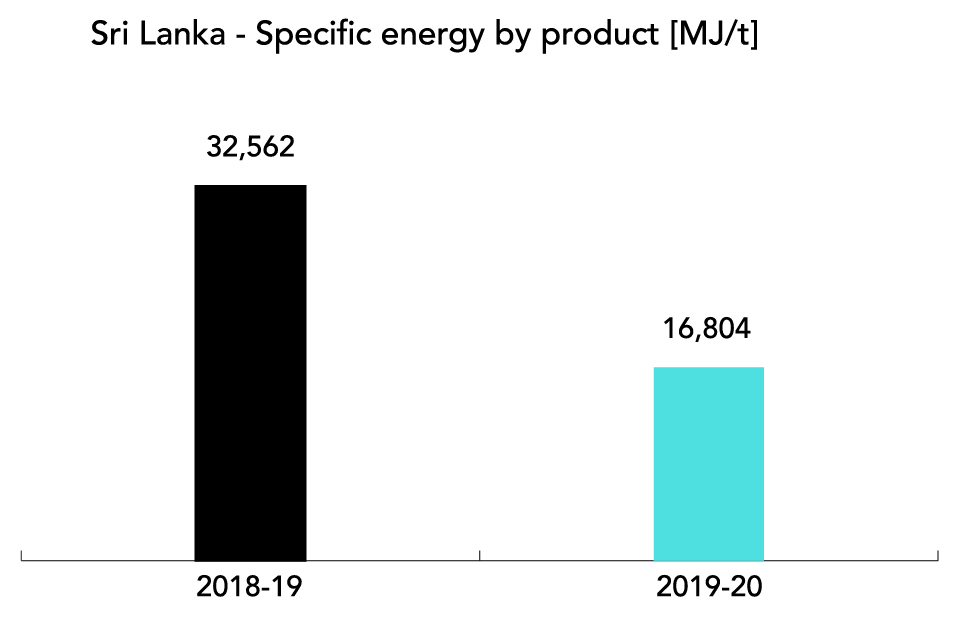
2. Water
We continually evaluate and implement innovative projects to reduce specific water consumption. We continue to source our water from sustainable sources. We have also supported integrated watershed projects to replenish groundwater levels.
To know more about our watershed programme, refer to our FY 2018-19 report: Building a more inclusive and greener world > Good & Green > Enabling sustainable communities
Key initiatives in India in fiscal year 2020:
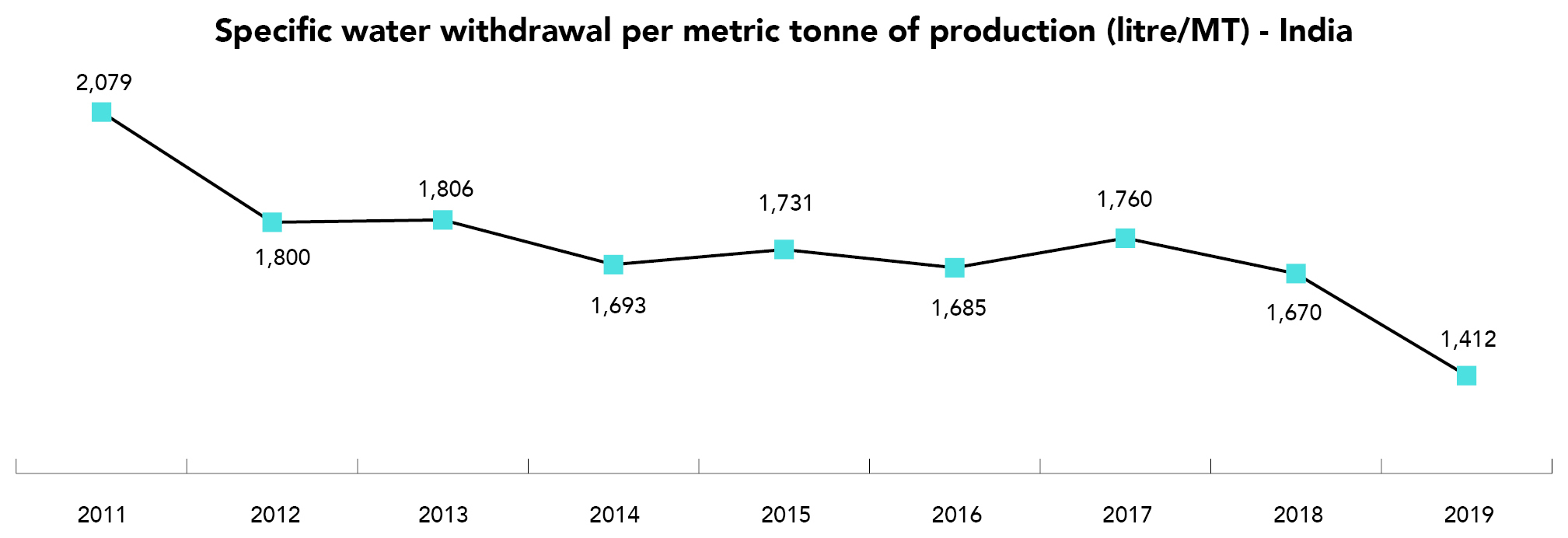
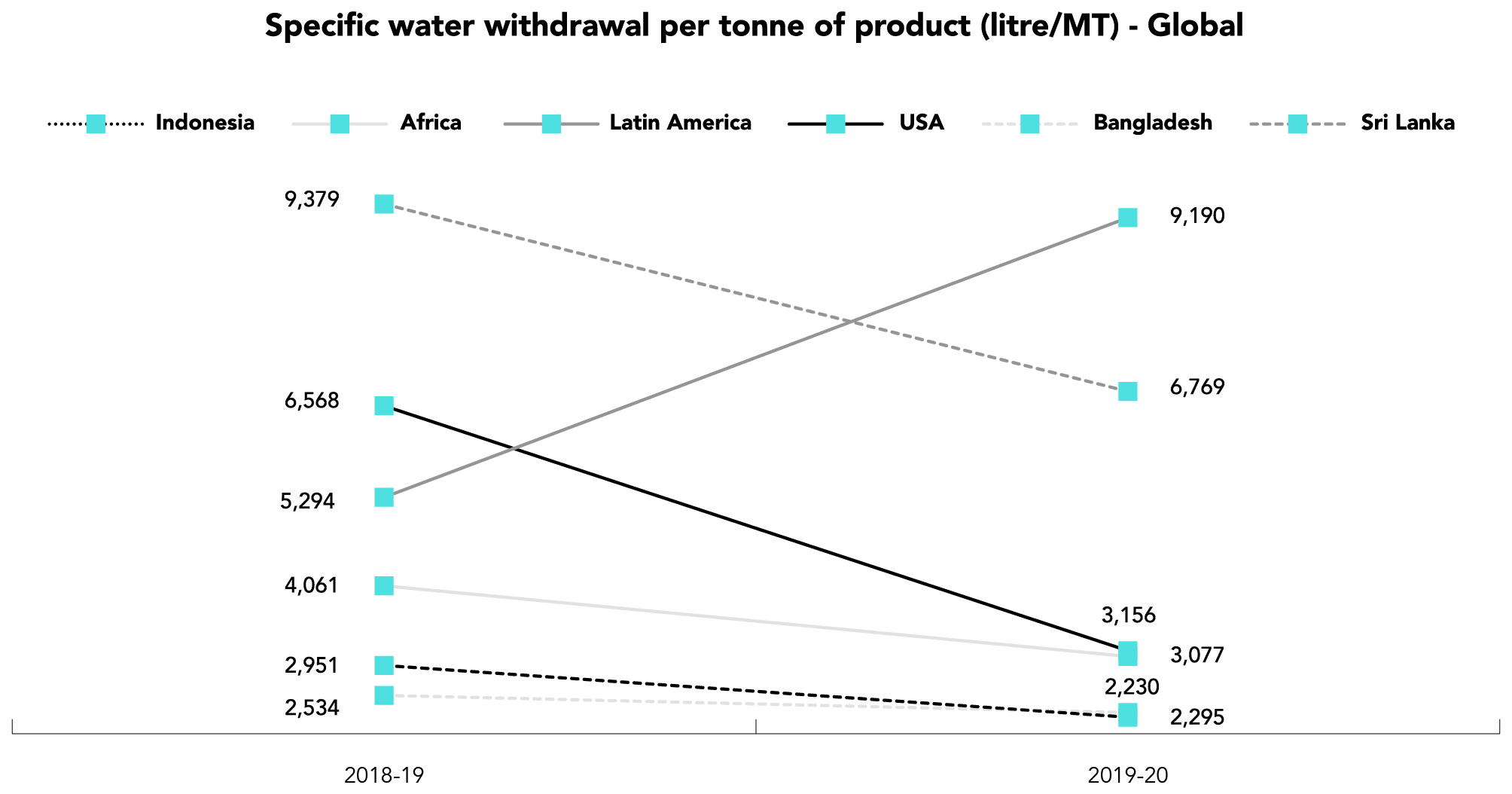
3. Waste
We have undertaken several initiatives to reduce waste generation and divert the waste from landfills to gainful applications. We continue to divert our Malanpur plant’s ETP sludge from landfills to co-processing at a cement plant. As a result, we have already achieved over 99 per cent reduction in waste to landfill. We are also on track with our extended producer responsibility
(EPR) commitment.
Key initiatives in fiscal year 2020:
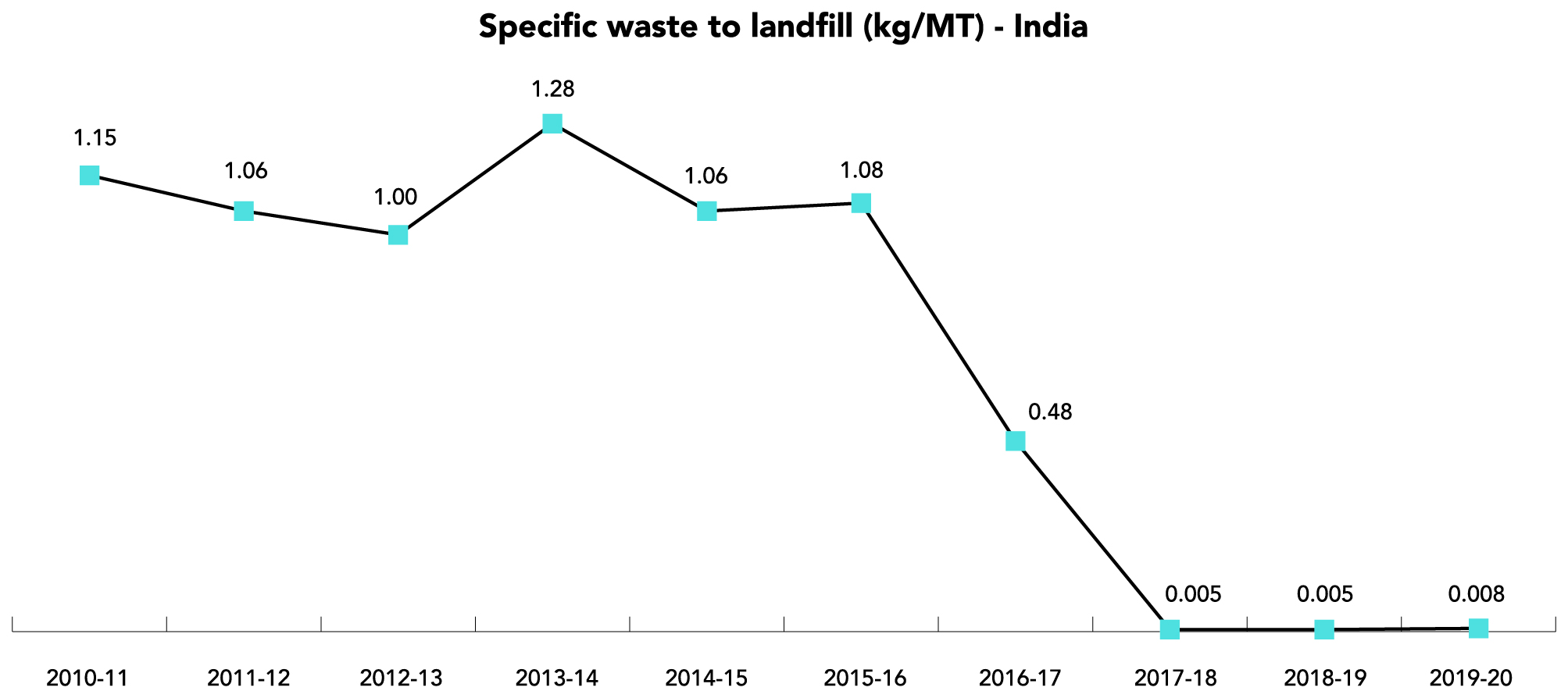
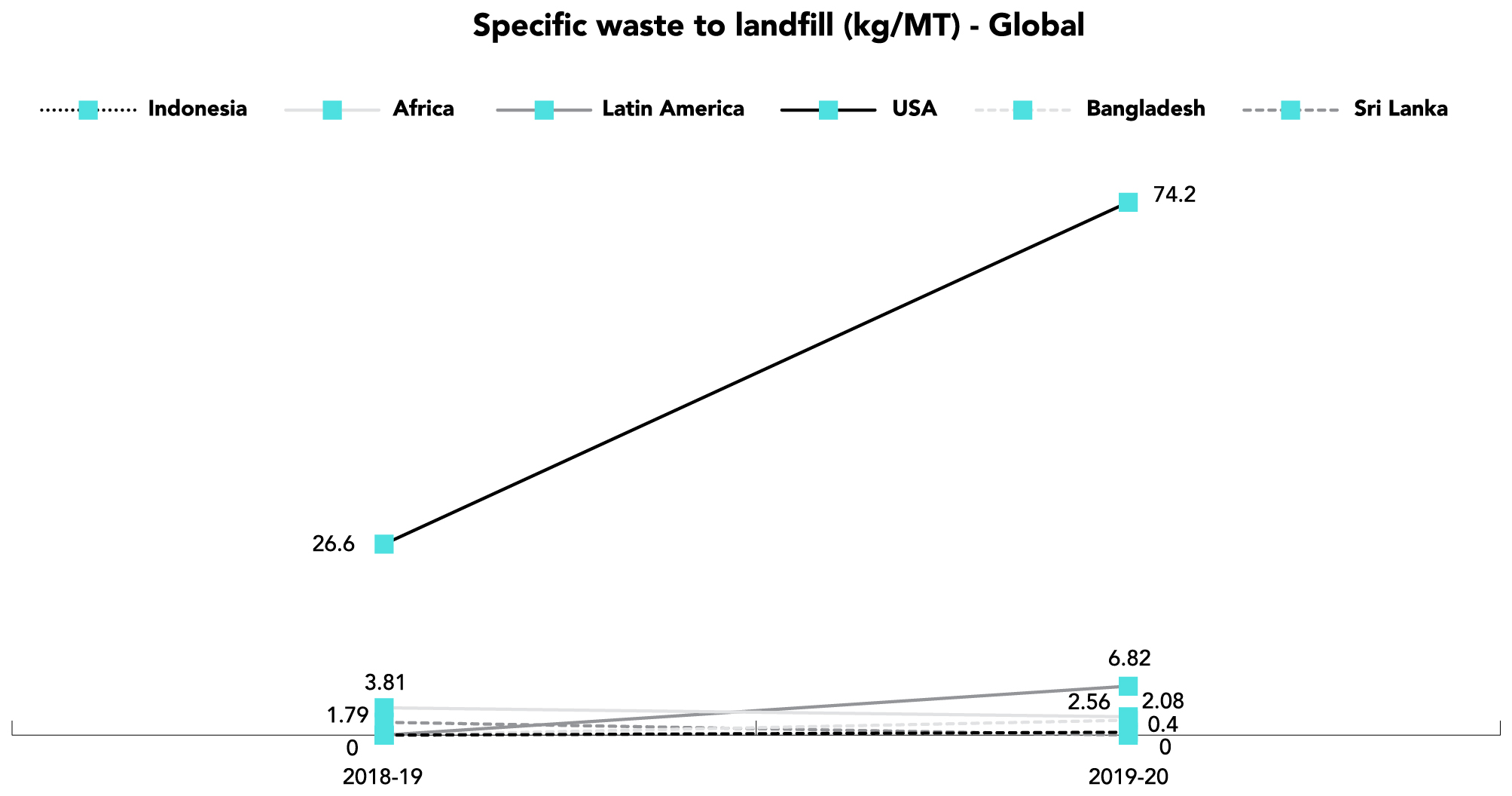
4. Emission
All our manufacturing units monitor their GHG emissions, and we have set short-term targets to reduce emission and achieve carbon neutrality. Our energy efficiency initiatives contribute to GHG emission reductions. They include switching to renewable biomass for boilers, procurement of renewable energy, flue gas heat recovery from boilers and utilisation in the process, and installation of energy-efficient equipment.
In fiscal year 2020, we reported a higher emission trend. The main reason for
this was:
We are undertaking different measures to address this, including the following:
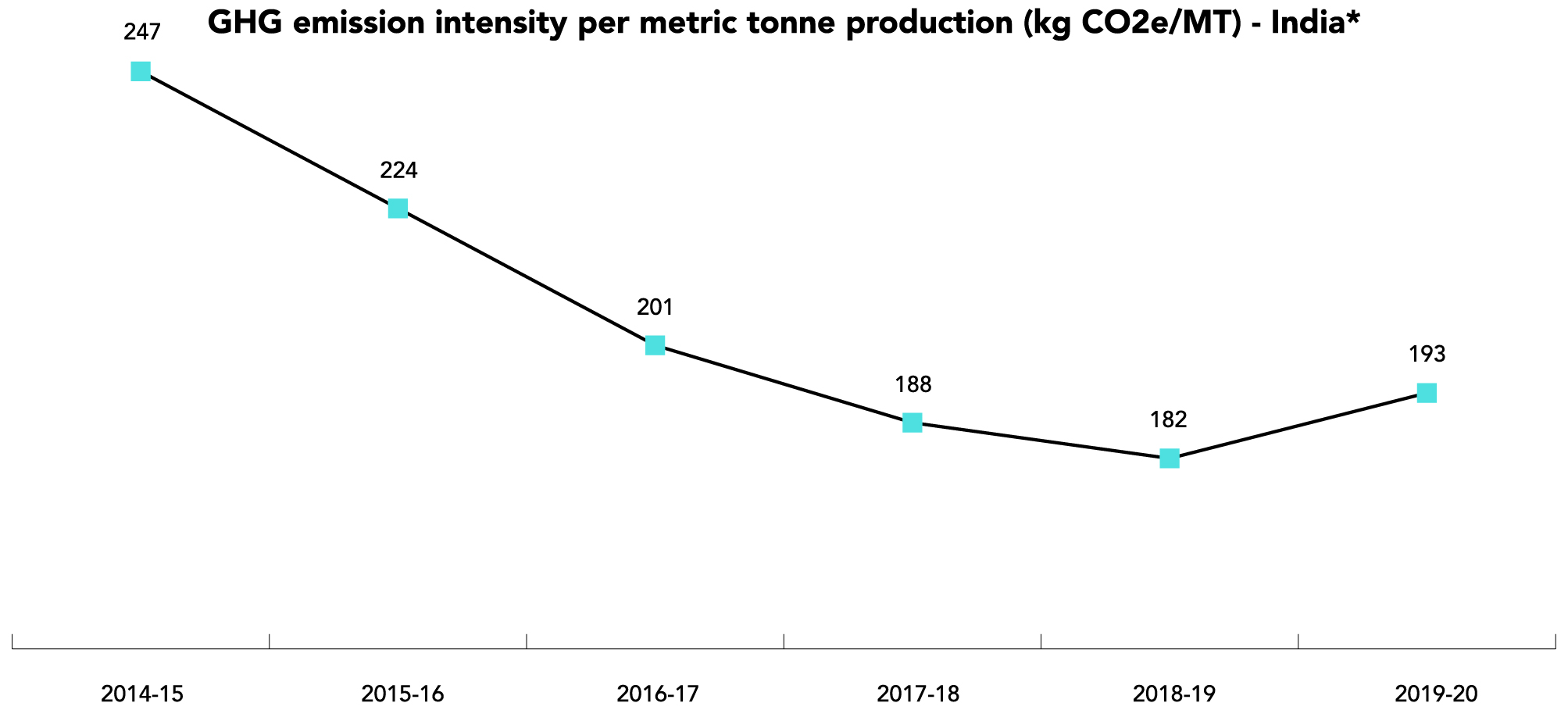
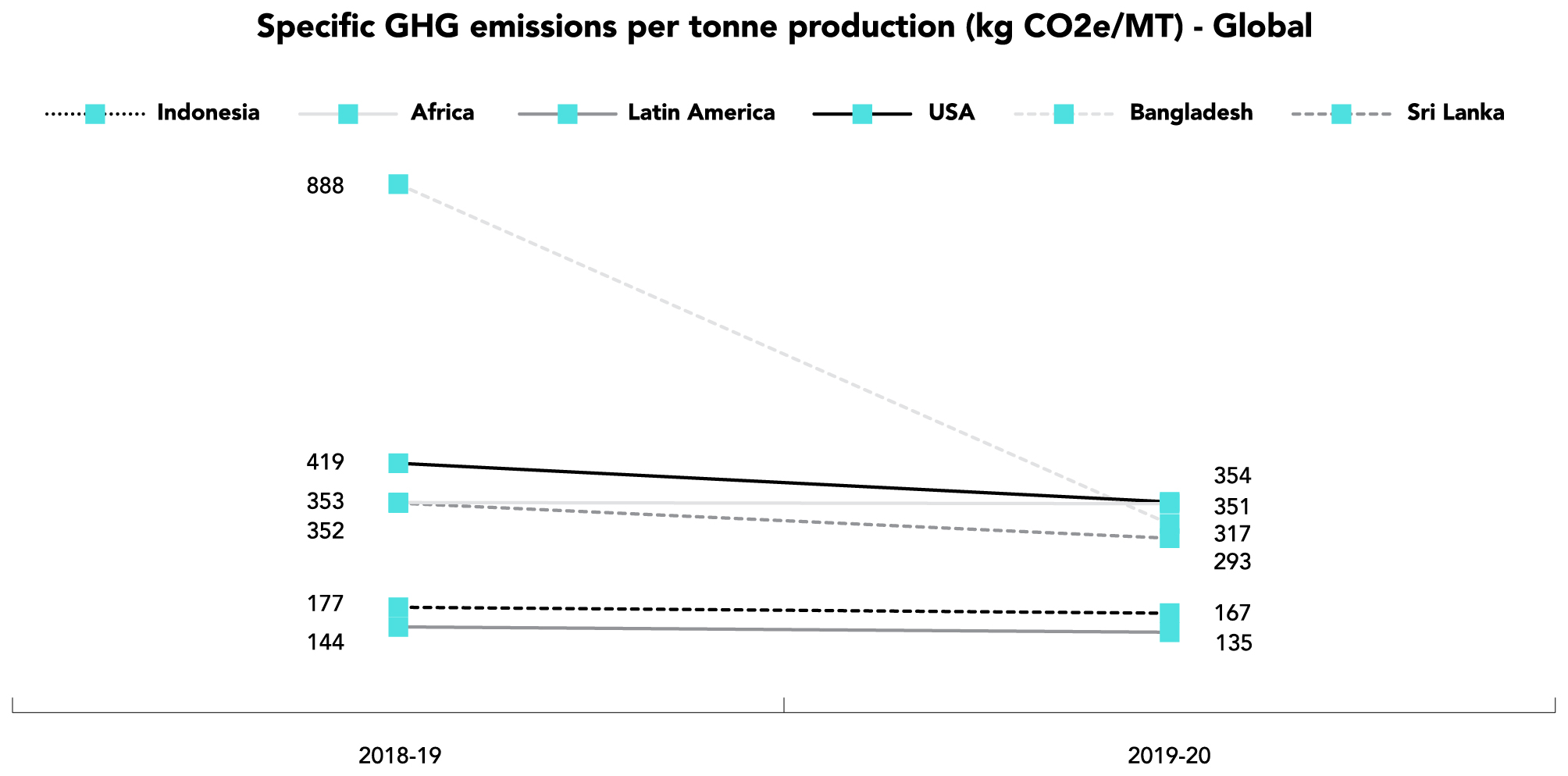
* Emission calculated from
energy consumption within our operations

In a FMCG business, packaging plays a very important role in maintaining product integrity. We use delightful design and packaging as a way to differentiate our products - and we aim to do this in an eco-friendly way. A number of our products are known for unique packaging, which balances utility and recyclability. In addition to our Good & Green targets, at a company level, we have identified sustainable packaging targets for fiscal year 2025.
Our goals
1. Reduce packaging consumption per unit of production by 20 per cent from the base year of fiscal year 2018
Approach
2. Ensure that 100 per cent of the packaging material is recyclable, reusable, recoverable, or compostable
Approach
3. Use at least 10 per cent post-consumer recycled (PCR) content in plastic packaging
Approach
Key initiatives in fiscal year 2020:
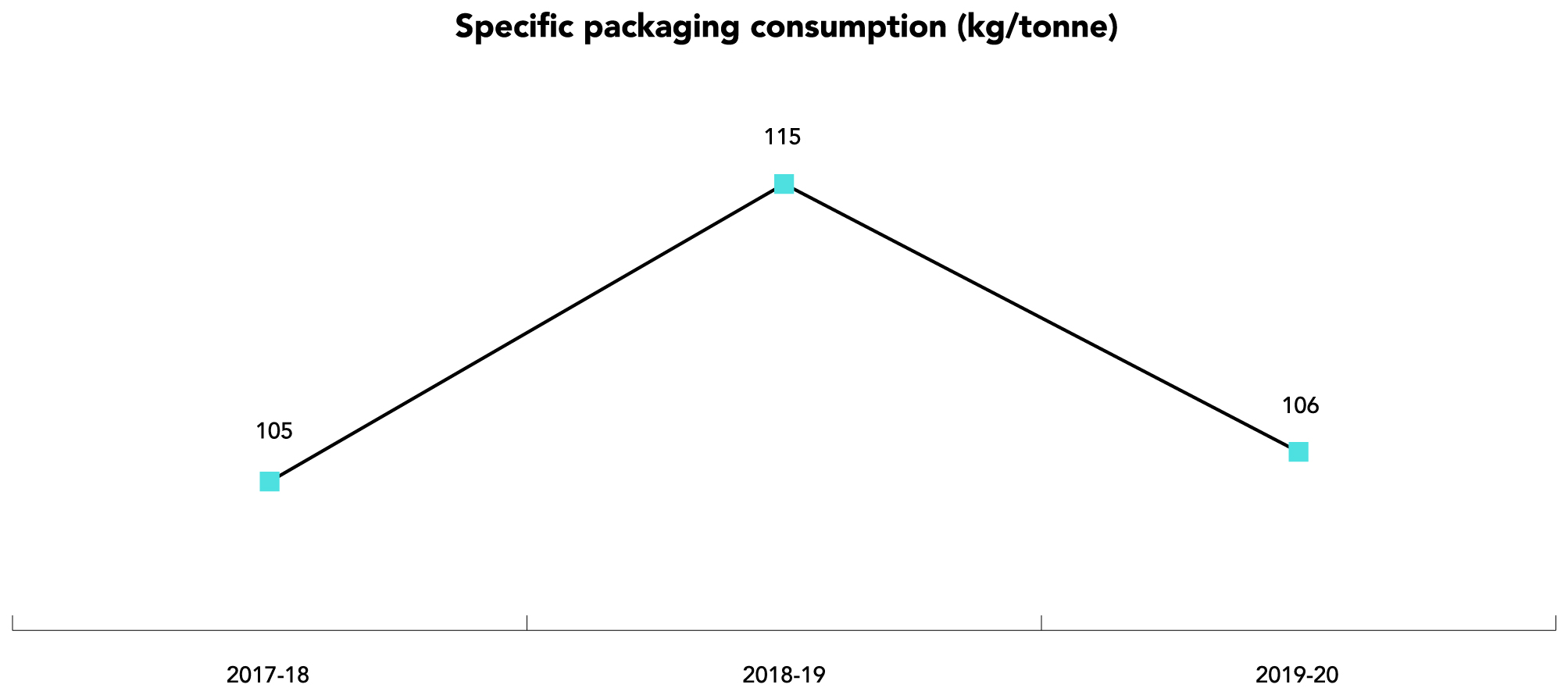

Our livelihood programmes focus on economic empowerment and are a part of our CSR initiatives. They are guided by our Good & Green vision and our CSR policy, and are reported under Schedule VII, Section 135 of the Companies Act, 2013 in the Directors’ Report.
We follow a shared value approach that addresses critical economic needs of marginalised and underprivileged sections of society, while strengthening our competitive advantage.
To know more about the need for women employability, details of our trainees, our approach, and our journey, refer to our FY 2018-19 report: Building a more inclusive and greener world > Good & Green > Building inclusive and prosperous communities > Livelihood
1. Salon-i and Beautypreneur in India
Salon-i
Overview:
Our flagship social initiative, Salon-i, is a vocational training programme for women. It is designed entirely in-house to train young women in basic cosmetic skills, skin and hair care, and mehendi application. In addition, life skills and entrepreneurship development modules enable women to take up jobs or pursue self-employment, depending on their unique skillsets and circumstances. Compared with the country’s overall need, Salon-i’s employability goal is small; however, the programme is unique as it specifically aims at employability, entrepreneurship, and empowerment of women. Since fiscal year 2013, we have trained over 2,27,094 young women and continue to invest in their initiatives.
Impact:
Our third-party impact assessment of Salon-i showed a three-fold increase in our trainees participating in paid work - from 14 to 45 per cent, of which 78 per cent were first time entrants in the workforce. Our trainees contributed between 15 and 50 per cent of their household income, depending on nature and location of their work. The median monthly salary for salon workers was ₹4,000 and ₹2,500 for those working at home. This income was nearly three times higher than what the trainees earned before the training. Forty per cent of the trainees also reported saving a part of their income for their financial security and purchase of assets. Qualitatively, the majority of the trainees attributed a sense of selfworth and confidence to face challenges as a key benefit of training. Trainees with difficult circumstances at home were more appreciative of the life skills curriculum that helped them negotiate
social barriers
Beautypreneur
Overview:
As an extension of Salon-i, we reached out to women micro-entrepreneurs in the beauty and wellness sector in various parts of the country and set up the Beautypreneur platform. Beautypreneur aims at incubating beauty and wellness entrepreneurship in women, thereby enabling them to train other women. This is in addition to their regular salon business and therefore, helps them expand their enterprise. Since fiscal year 2017, we have supported over 4,210 women entrepreneurs and continue to expand our reach.
Impact:
A third-party Social Return on Investment (SROI) study of Beautypreneur showed an overall social return of ₹6 .46 on the programme for every ₹1 invested. Beautypreneurs reported a 50 per cent increase in their revenue after training, achieved with a mix of lower expenses and higher sales of their services.
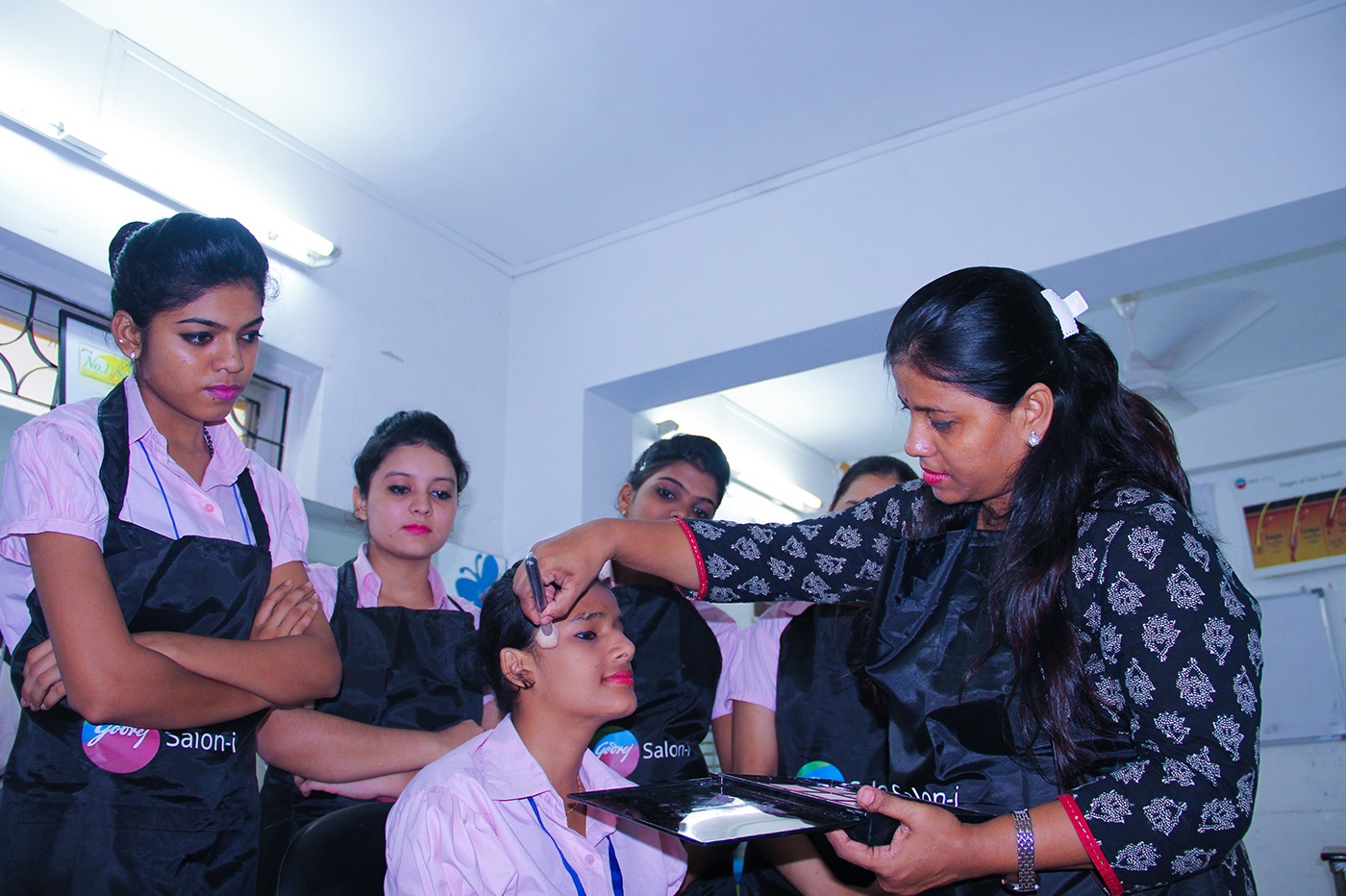
We have trained over
2,27,094 young women
through our Salon-i programme
Priyanka Chalke, Mumbai
Priyanka had to drop out school and start working as a teenager to support her family. From being a domestic help to working as a caterer to being a security guard - she’s done all that she could find, and tried to balance the needs of her family on a small wage. At 23, she got married and found support from her husband. However, her husband’s health deteriorated, and monetary issues grew. This time around, Priyanka was on the lookout to skill herself and find an opportunity to gain a steady income. She came across the Salon-i beauty and wellness training course and enroled for it. After completing the course, she began home services and building her clientele. Her dedication stood out, and our non-profit partner offered her a full-time job as a beauty trainer. She is now able to manage the needs of her family, and is training young girls to build their skills and confidence.
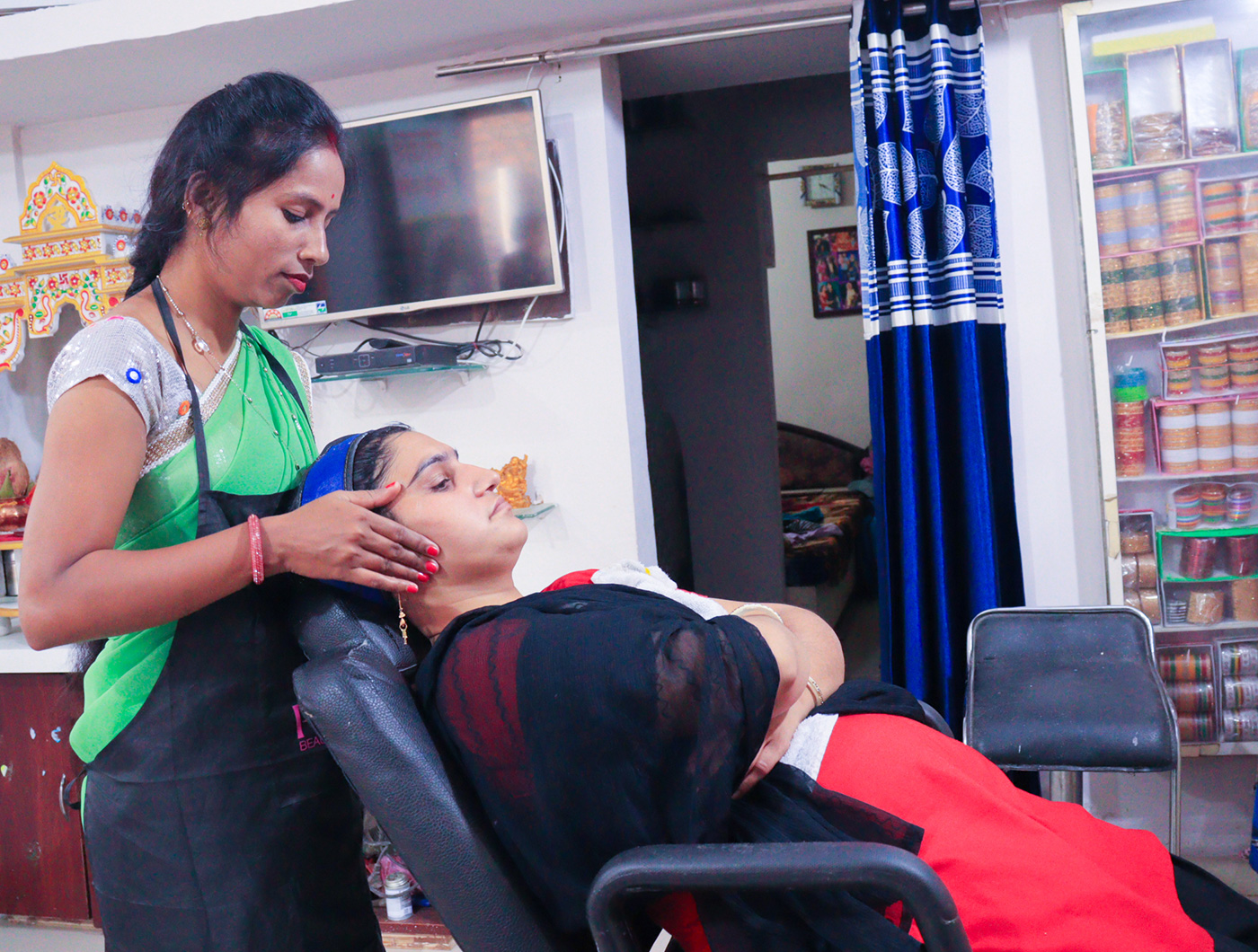
Our Beautypreneur programme works with micro-entrepreneurs in the beauty and wellness sector
Sadhna Tilvania, Indore, Madhya Pradesh
Sadhna, a mother of two, is a beautician by profession, and runs a small beauty parlour in a slum, while her husband works in a local clothing shop. She managed to earn only ₹2,000-₹3,000 per month, and it was becoming a challenge to run her business. In 2018, our non-profit partner met Sadhana and briefed her about the Beautypreneur programme with Godrej Expert Rich Crème. She enroled and found the training immensely useful. Armed with new-found knowledge and renewed confidence, she built new income sources such as organising seminars in her area and utilising the leaner business months to focus on training students. Both strategies boosted her income by three-fold to ₹8,000
per month.
2. Darling hair and beauty skills training in Kenya
Overview:
We run hairdressing training for young women from underprivileged backgrounds at 34 training centres in Kenya, of which 30 centres are run in partnership with local county polytechnics.
Output:
We have trained over 4,200 women in five years. We are motivated by the successes so far reported by our alumni, several of whom have gone on to set up their own businesses (salons). We would like to facilitate the same for many more.
Mercy Hamisi, Nairobi
Like many other Kenyan youth, Mercy too had no formal training, and no source of income, which made her vulnerable to exploitation. A neighbour told her about the Darling hairdressing training programme and she enrolled with the hope of securing a steady income source. She trained for three months at the Likoni centre, where she learned technical hair dressing skills, and communication and client engagement. After training, she landed a job at the Lucky Salon in Nairobi, and has been able to meet the financial needs of her and her family. Today, she is able to provide for her food, pay school fees for her siblings, and also support her parents, including paying for rents at her family home. She has become an organic brand ambassador for our programme and has inspired 10 girls from her hometown to enrol for training.
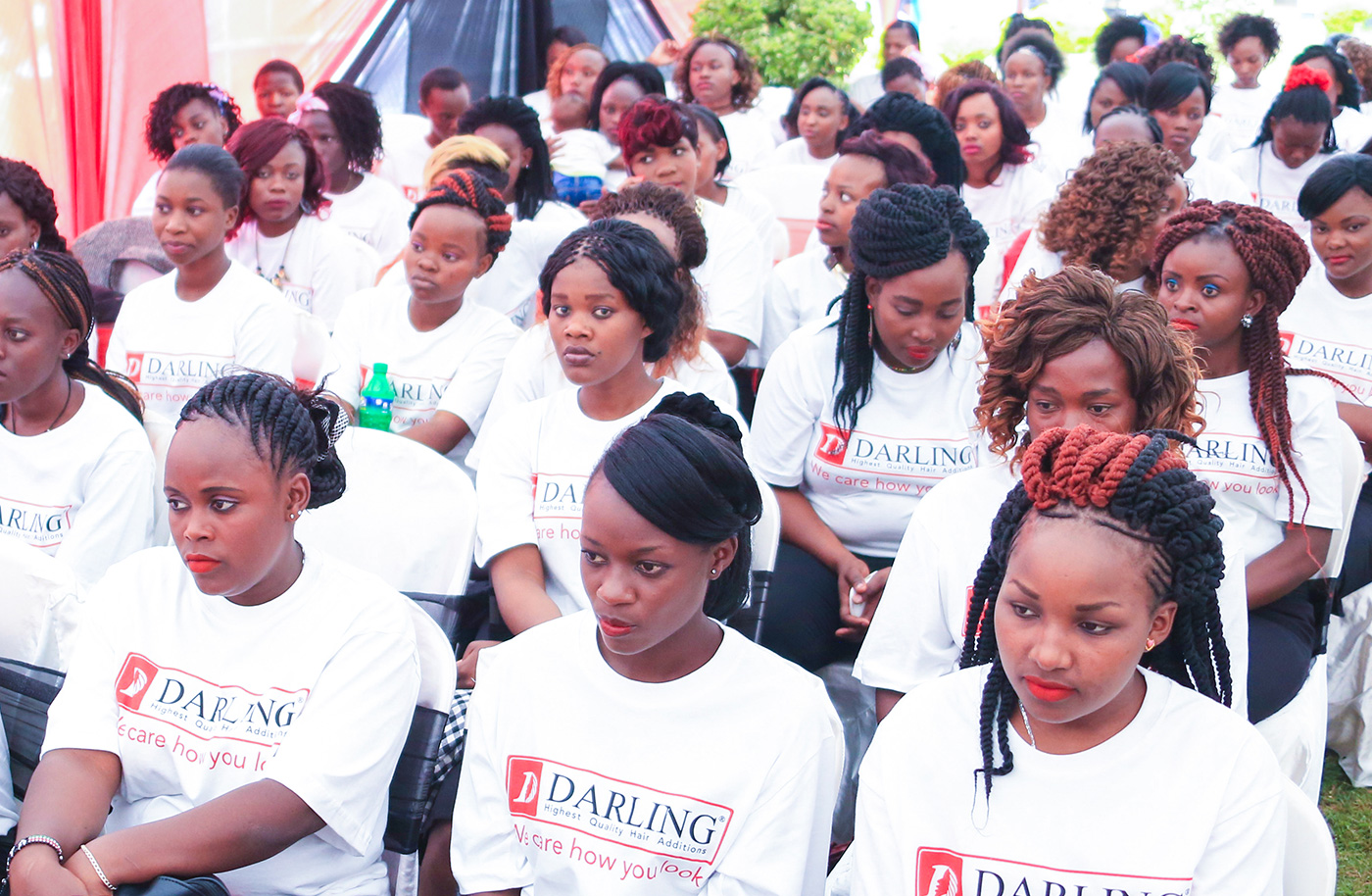
We are stepping up efforts through hairdressing training in Kenya

Elimination of Mosquito-Borne Endemic Diseases (EMBED)
Overview:
EMBED is a great example of a CSR initiative built on the principle of shared value. It was initiated in Madhya Pradesh in 2015 in partnership with the Ministry of Health and Family Welfare’s National Vectore Borne Disease Control Programme (NVBDCP); we have also recently expanded to Uttar Pradesh and Chhattisgarh.
Through EMBED, we collaborate with non-profit organisations and the state government to run intensive behaviour change programmes in seven districts of Madhya Pradesh, and two districts each in Uttar Pradesh and Chhattisgarh. The focus is on building awareness in households for people at the bottom of the pyramid and for vulnerable and marginalised groups in tribal, hilly, and hard-to-reach areas. The programme has achieved full coverage in 830 villages across these 11 districts.
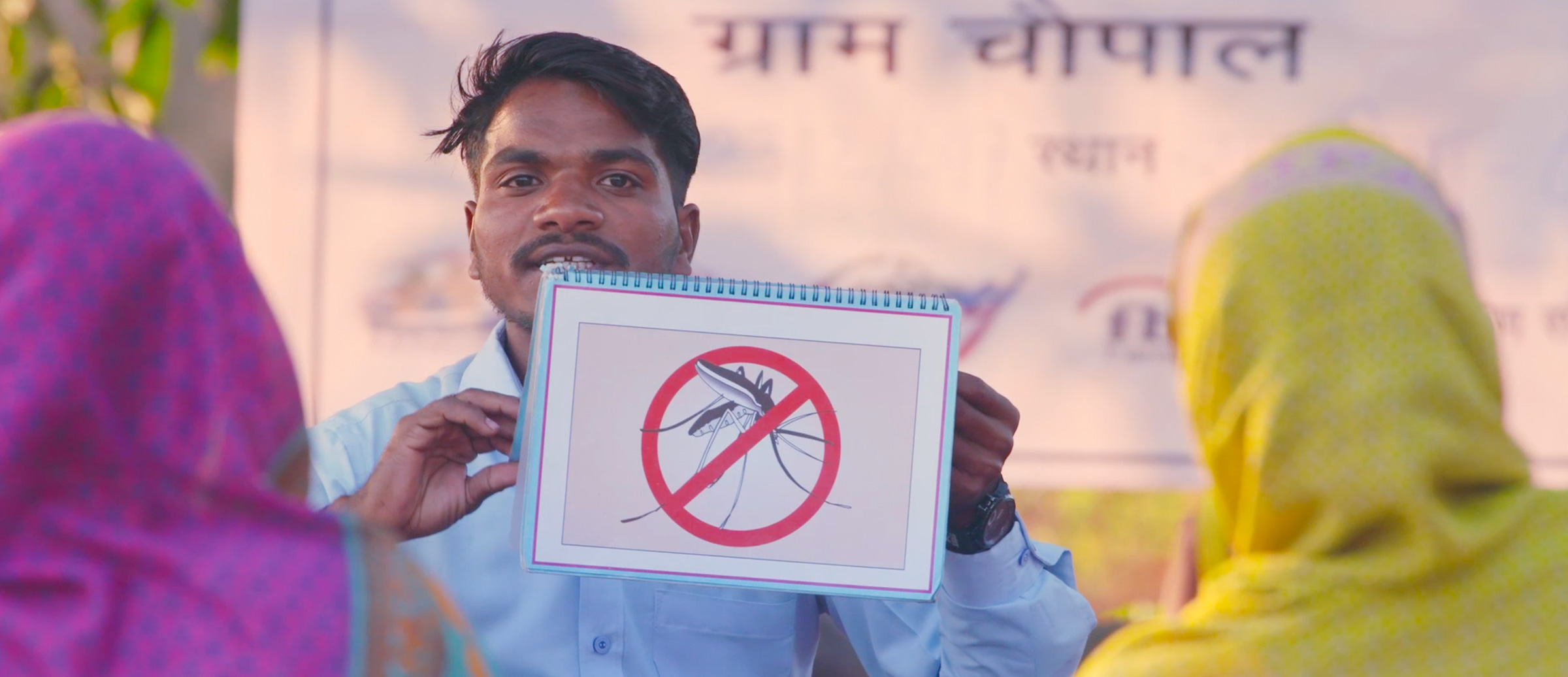
Project EMBED aims to eliminate malaria
by creating awareness and driving
behaviour change
Impact:
Dukhiram Yadav, Chindwara Ryat, Mandla
Dukhiram Yadav is a 50-year-old farmer and daily wage labourer. Like many in his village, he was diagnosed with malaria in 2015. Being a daily wage earner, his productivity and income took a hit. Soon after, his wife caught the disease, quickly followed by the children, and soon the whole household was suffering together. They had almost no awareness about the disease, the causes of disease, or how it could be prevented. Dukhiram mentioned that the workers spreading awareness about malaria in his village by visiting households helped him to be better protected against mosquito-borne diseases that he feels much safer with their precautionary measures. He now regularly uses bed nets provided by the village panchayat and keeps his surroundings clean. Since then, there has not been any malaria incident in
their home.

A significant focus of our CSR programmes is to work towards the sustainable development of communities, ensuring that current needs are met without compromising future requirements. We aim to address the challenges of climate change, urbanisation and economic growth.
To know more about the need and approach of our waste management and watershed programmes, please refer to our FY 2018-19 report: Building a more inclusive and greener world > Good & Green > Building inclusive and prosperous communities
1. Waste management
Overview:
Our efforts towards solid waste management extend beyond our manufacturing plants and immediate areas of operations. As part of our CSR efforts, we run community waste management projects using circular economy principles. In the past, we have collaborated with the Hyderabad and Kalyan-Dombivali Municipal Corporations. Most recently, we have partnered with the Pondicherry Municipal Corporation to implement a community waste management project. We are working with a social enterprise in Guwahati to covert plastic waste into fuel. We are partnering with another enterprise in Assam that recycles forest and agricultural residue to produce briquettes to be used as biofuel. Together, through these projects, we aim to process and divert up to 50 metric tonne of waste from landfills per day.
2. Watershed management
Overview:
Our integrated watershed development project is helping restore the ecological balance in the drought-prone district of Siddipet in Telangana. Currently, groundwater levels are lower than 400 ft in many areas, and as a result, farmers are under acute pressure. In partnership with NABARD and a local NGO, we are treating land to replenish groundwater levels, improve irrigation, develop plantations, and ensure sustainable agriculture practices.
Output:
We have treated 870 hectares of land and carried out plantations through 3 lakh direct seedings and over 38,000 direct saplings. We have worked with over 300 farmers to diversify their livelihood and build their capacity on sustainable farming. We have also captured about 1 million kL of water in the region in fiscal year 2020.
3. Community initiatives
Overview:
We work closely in communities around our manufacturing plants, implementing community development initiatives that focus on improving education, health, and sanitation, access, and availability of water, and skill building. Through this, we reach out to and directly impact over 6,500 people annually.
Key initiatives in India:
Donations:
Every year, we make strategic donations to support skill development, employability, sports, arts and culture, and critical cancer ailment support. For more details, please refer to the Director’s Report.
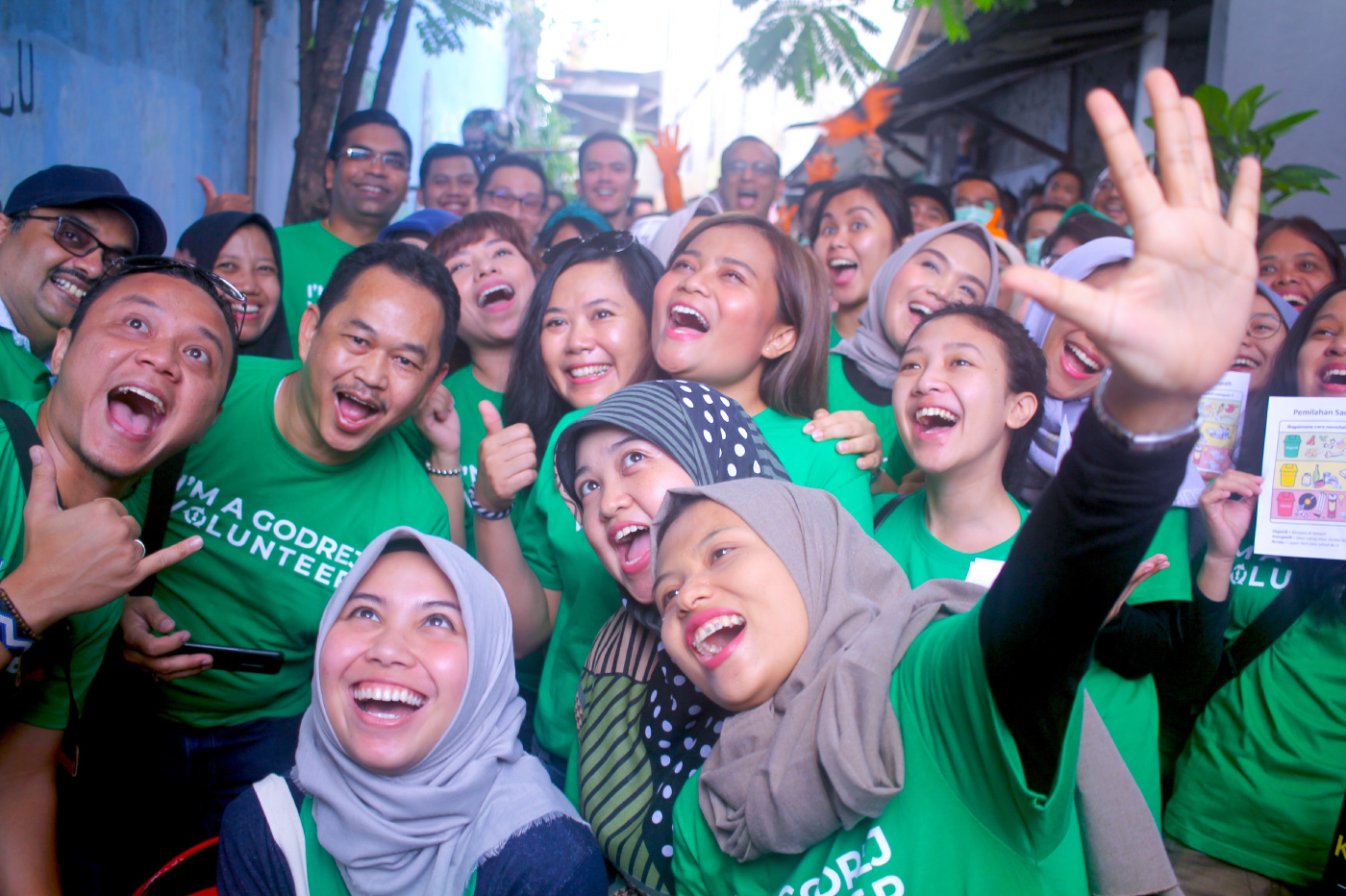
Volunteers from our Indonesia team on Godrej Global Volunteering Day

Our multi-faceted volunteering platform provides a range of opportunities for Godrejites to contribute their time and skills to community activities.
1. Godrej Global Volunteering Day
This is our annual day of community service. In 2019, close to 1,700 of our team members across the globe volunteered their time to eliminate single use plastic from their workplaces and lives. Godrejites participated in awareness sessions and clean-up drives in their offices and public places. Across Godrej Industries, we collected over 15.5 metric tonne of solid waste, which is equivalent to the waste generated by 11,000 people in a day. Of this, they sorted 9 metric tonne of plastic waste, and sent it for recycling.
2. Brighter Giving
These are long-term volunteering opportunities to help make a meaningful impact. Every year, volunteers take up projects that provide mentorship to students. We partner with iVolunteer to connect these students with our team members. Our volunteers provide career counselling, academic mentoring, and even
sports coaching.
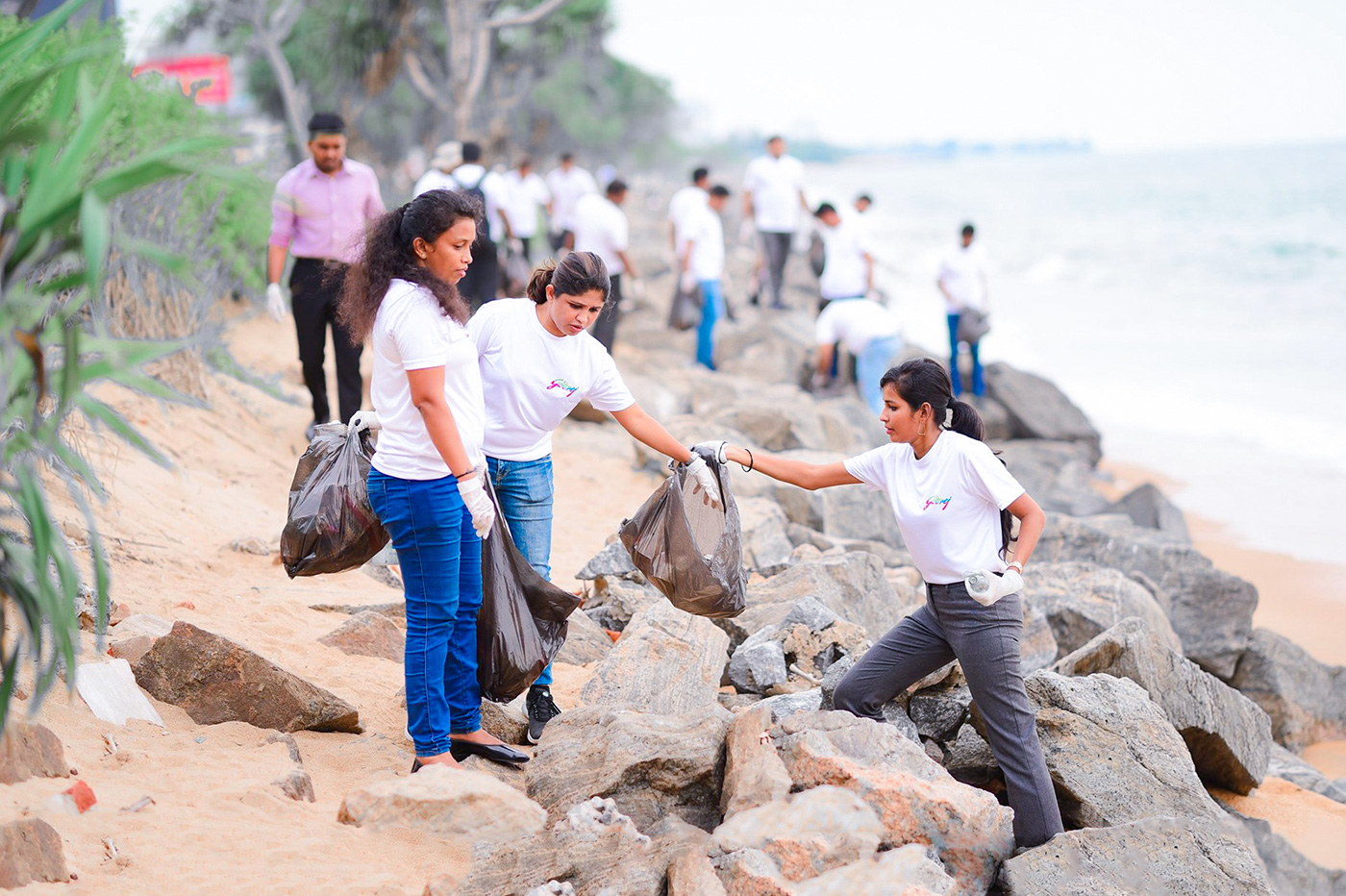
Pledging to eliminate
single use plastic as part of
Godrej Global Volunteering Day
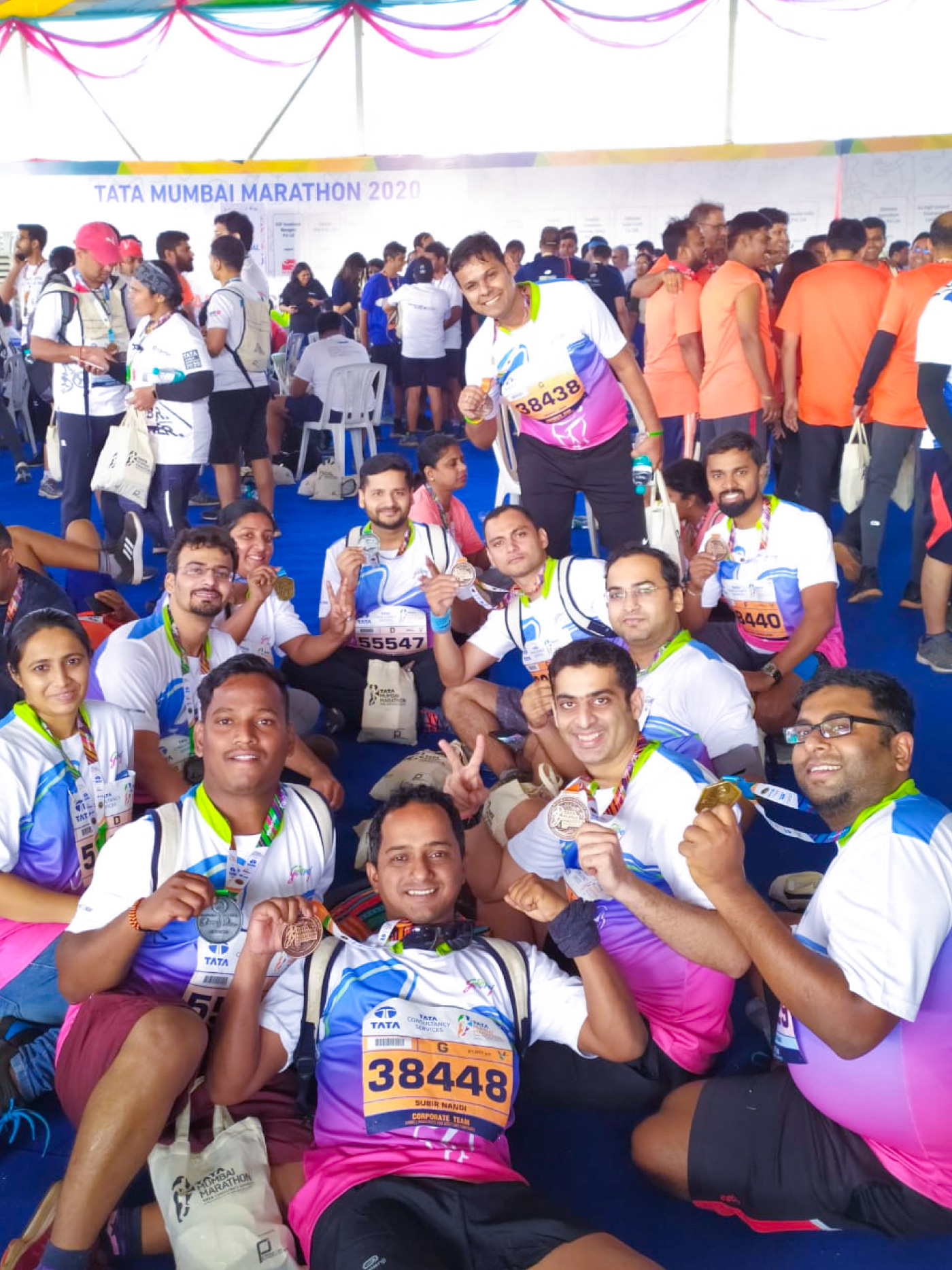
Godrejites run for Teach For India at the Tata Mumbai Marathon
3. Mumbai Marathon
In January 2020, 53 Godrejites completed the Tata Mumbai Marathon in support of Teach for India and raised over ₹14,00,000 to bring quality education to children from low-income families across India.
4. World Environment Day
Every year, on World Environment Day, our team members host celebrations and spread awareness about the effects of our actions on the environment. We organise tree plantation drives around the communities of our manufacturing plants, cleanliness drives in collaboration with local panchayat and municipal corporations, and awareness sessions in local schools, among other activities. In fiscal year 2020, over 2,350 Godrejites participated in these activities and planted over 6,200 saplings around the globe.
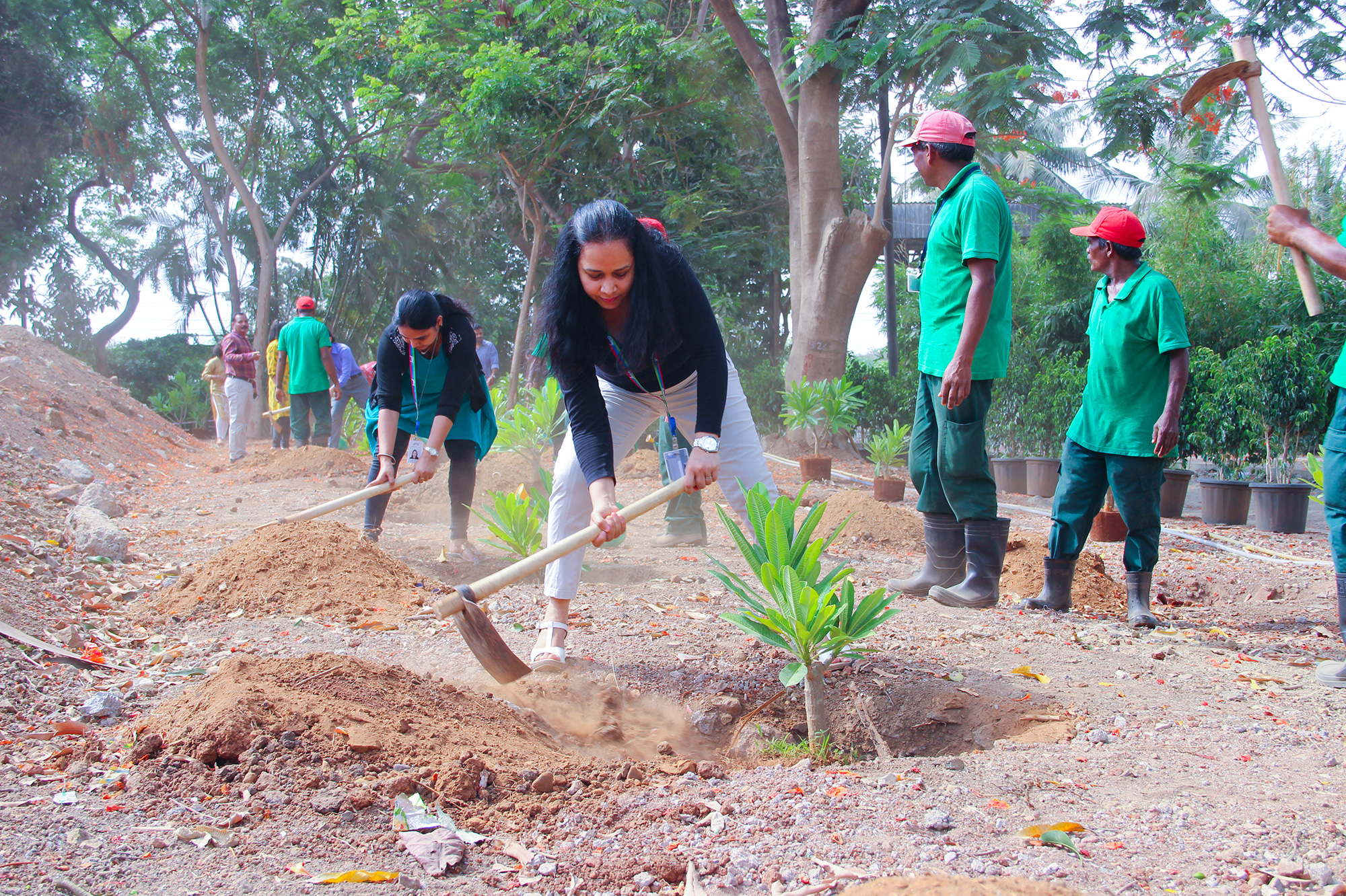
Spreading awareness around
World Environment Day in 2019
5. Payroll Giving
Our team members support our three non-profit partners directly through payroll giving. In fiscal year 2020, 132 Godrejites across the Group registered for the first time, and 149 continued their support. Together, they contributed over ₹9,00,000 in support of education, health and safety of children, and environment preservation and conservation.
As a part of our disaster relief efforts, we provide support to areas affected by natural disasters through contributions from Godrejites and matching grants from the Group. In 2019, we provided support for flood relief efforts.
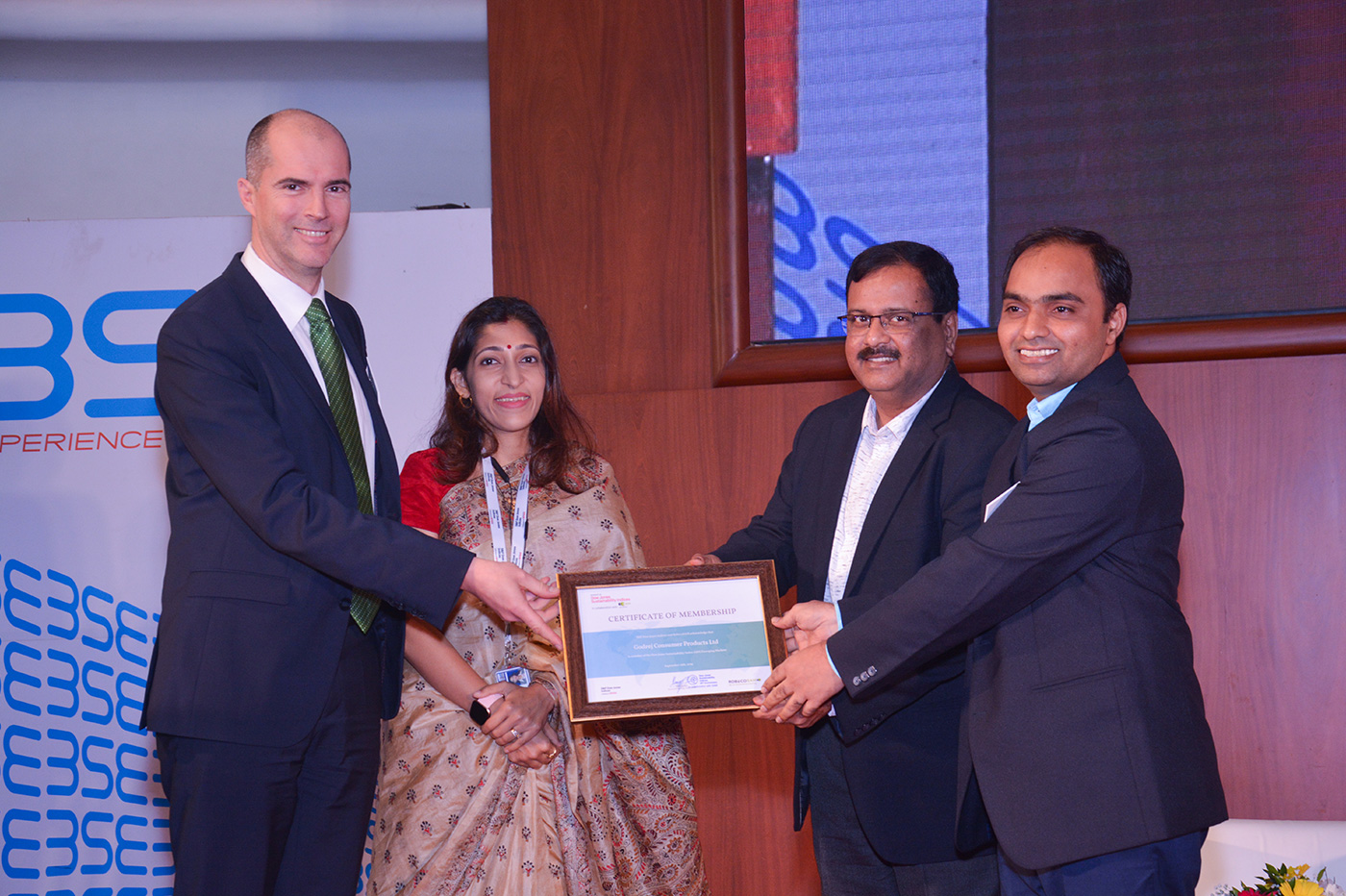
We were recognised on the
Dow Jones Sustainability Index 2019
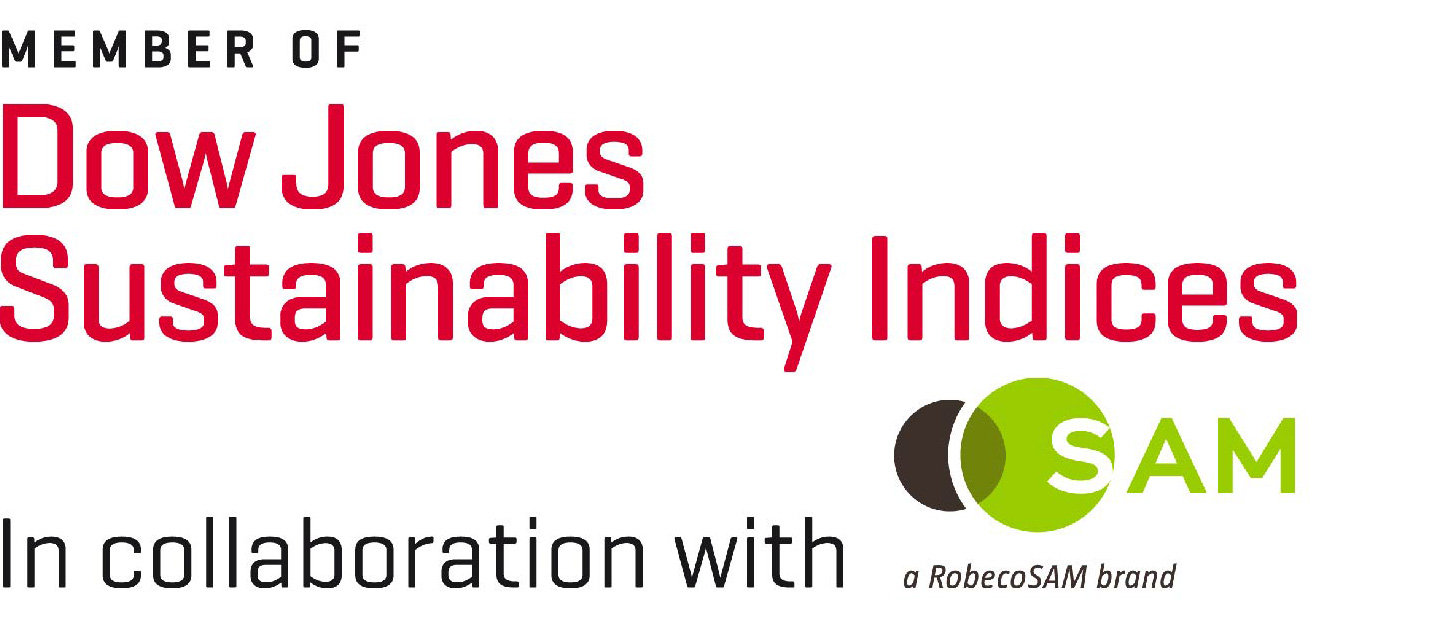
Dow Jones Sustainability Index for
Emerging Markets 2019
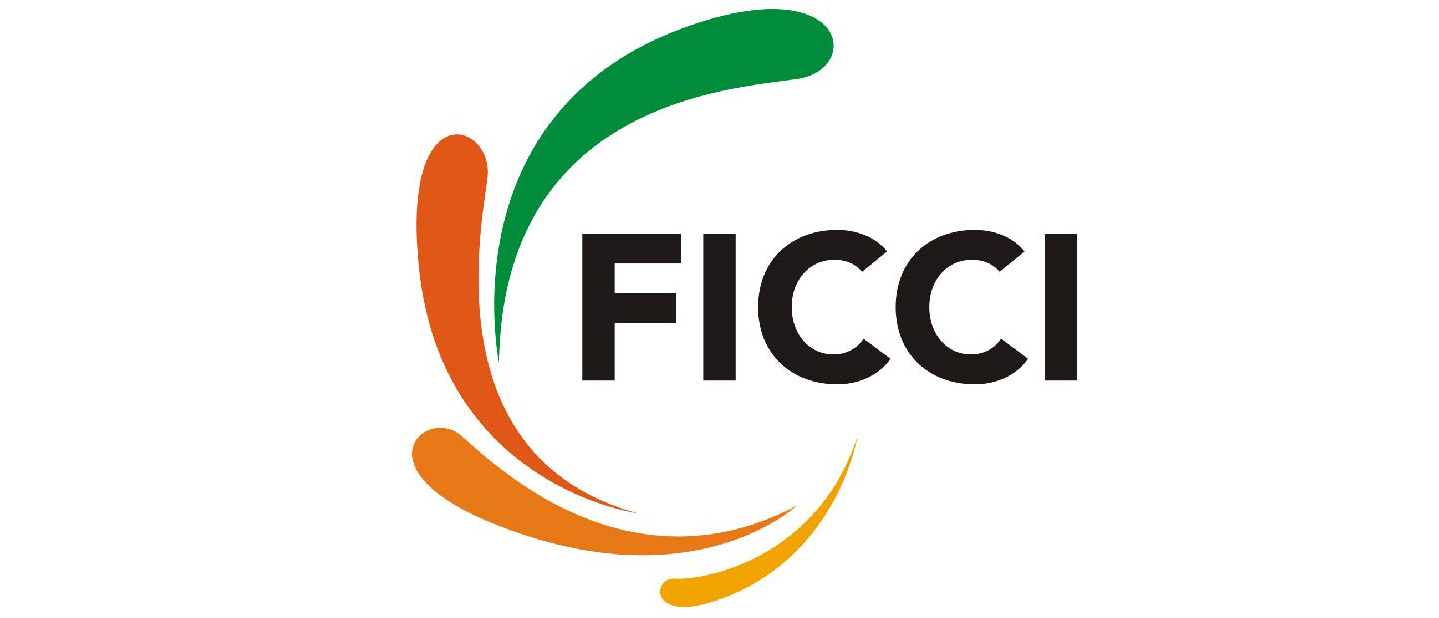
Efficiency in Energy Usage in
Chemical sector, FICCI Chemicals and
Petrochemicals Awards 2019